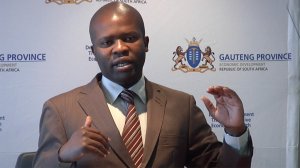Productivity declines in the manufacturing sector, influenced by the depressed global demand for South African products, is to blame for the rapid contraction in Gauteng’s gross domestic product (GDP) in recent years.
Gauteng MEC for Economic Development, Environment, Agriculture and Rural Development Lebogang Maile on Thursday told delegates at the Gauteng Industrialisation Forum that the lower provincial GDP growth had led to factory shutdowns, downsizing of operations and a massive loss of jobs in areas such as Ekurhuleni, as a result of challenges faced by the metals, rubber and chemicals industries.
“Manufacturing declined rapidly, from contributing 21% of the [province’s GDP] in 2008, to 11.7% in 2014, [while] employment in the sector also drastically declined from 2-million to 1.7-million,” he said.
Maile pointed out that [the] continuous decline of the manufacturing sector in relation to its contribution to GDP posed a significant challenge to the country and the province.
“We are aware that there is a school of thought that argues that we should allow the sun to set on the manufacturing industry and rather focus on what seems to be a dominant feature of our economy.”
However, he argued that deliberate and coordinated efforts to support manufacturing, such as the provision of incentives, raising the skills level of the population and continued investment in infrastructure, would give expression to the province’s ten-pillar transformation, modernisation and reindustrialisation programme.
“Over the next 5 to 15 years, decisive steps will be taken to make Gauteng an integrated city region, characterised by social cohesion and economic inclusion.
“In addition, there is a need to change the structure of our economy to undermine our subordinate position in the international division of labour by adding value to our products through mineral beneficiation and agroprocessing,” he said.
Meanwhile, Maile said the province was taking the issue of electricity shortage seriously, as this had the potential to undermine the province’s reindustrialisation efforts.
The MEC noted that more concrete plans for the energy crisis would be communicated on February 23, when Gauteng Premier David Makhura would hold a stakeholders meeting.
SOCIAL IMPACT
Meanwhile, Maile said that the recent unrest in Soweto, following the fatal shooting of a 14-year-old accused of trying to rob a shop owned by a foreigner, highlighted the need for accelerated social and economic transformation.
The MEC stressed that there was a need to modernise the delivery of education and the building of smart schools; improve the delivery of primary healthcare services and modernise health institutions; and tackle urban poverty and social development challenges, while dramatically improving the safety of communities.
“The economy also needs radical interventions for transformation to foster black participation and provide opportunities for small and medium-sized enterprises and township enterprises.
“As long as we do not change the structure of our economy, and we do not [ensure] that the vast majority of our people are integrated into the economy; for as long as people feel economically neglected and feel frustrated, we will continue seeing the kind of incidents we are seeing in Soweto,” he stated.
EMAIL THIS ARTICLE SAVE THIS ARTICLE
To subscribe email subscriptions@creamermedia.co.za or click here
To advertise email advertising@creamermedia.co.za or click here












